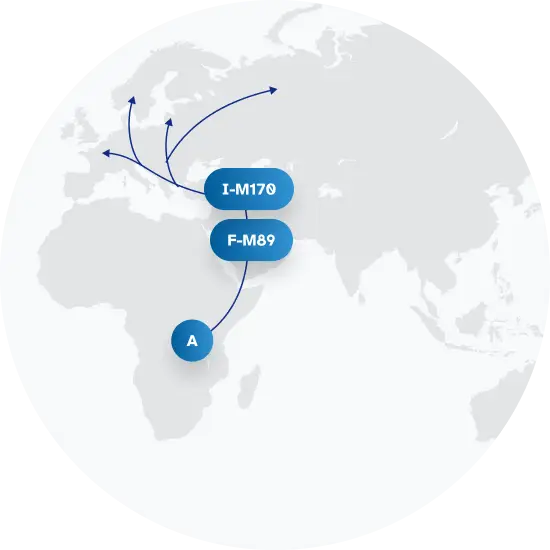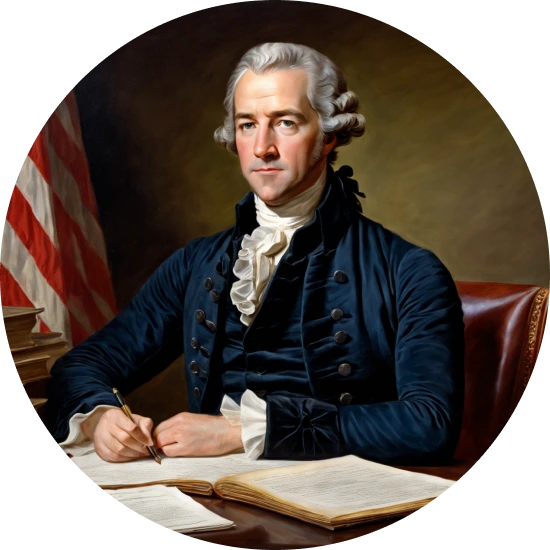Explore the Family Name Best
How common is the last name Best in the United States?
According to data based on the Decennial U.S. Census, the surname Best has seen a slight decrease in popularity over the decade from 2000 to 2010. In 2000, Best was ranked as the 855th most popular surname in the United States, but by 2010 it had dropped slightly to 911th place, representing a change of -6.55%. However, despite this drop in rank, the actual number of people with the surname Best increased over this period, from 36,862 in 2000 up to 37,923 in 2010, an increase of 2.88%. Similarly, the proportion of the surname Best per 100,000 people decreased by -5.86%.
| 2000 | 2010 | Change | |
|---|---|---|---|
| Rank | #855 | #911 | -6.55% |
| Count | 36,862 | 37,923 | 2.88% |
| Proportion per 100k | 13.66 | 12.86 | -5.86% |
Race and Ethnicity of people with the last name Best
When it comes to ethnic identity, the Decennial U.S. Census data reveals shifts among those carrying the Best surname between 2000 and 2010. The largest percentage increase was observed within the Asian/Pacific Islander group, which saw a 63.64% growth, albeit still representing a small portion of all Bests at 0.54%. The Hispanic representation also grew significantly by 46.28%, reaching 2.75% of all Bests in 2010. There was a modest rise in the Black population with the Best surname, increasing by 2.09% to reach 22.50%. The White population maintained the majority but saw a slight decrease of -2.59%, bringing their representation down to 71.82%. Those identifying as two or more races rose to 1.79%, up by 20.95%, while the American Indian and Alaskan Native group saw a 13.21% growth to represent 0.60% of all Bests.
| 2000 | 2010 | Change | |
|---|---|---|---|
| White | 73.73% | 71.82% | -2.59% |
| Black | 22.04% | 22.5% | 2.09% |
| Hispanic | 1.88% | 2.75% | 46.28% |
| Two or More Races | 1.48% | 1.79% | 20.95% |
| American Indian and Alaskan Native | 0.53% | 0.6% | 13.21% |
| Asian/Pacific Islander | 0.33% | 0.54% | 63.64% |
Best ancestry composition
23andMe computes an ancestry breakdown for each customer. People may have ancestry from just one population or they may have ancestry from several populations. The most commonly-observed ancestry found in people with the surname Best is British & Irish, which comprises 50.0% of all ancestry found in people with the surname. The next two most common ancestries are French & German (23.8%) and Eastern European (3.7%). Additional ancestries include Scandinavian, Nigerian, Ghanaian, Liberian & Sierra Leonean, Ashkenazi Jewish, and Italian.
Ready to learn more about your ancestry? Get the most comprehensive ancestry breakdown on the market by taking our DNA test. Shop 23andMe
| ANCESTRY BREAKDOWN | COMPOSITION |
|---|---|
| British & Irish | 50.0% |
| French & German | 23.8% |
| Eastern European | 3.7% |
| Other | 22.5% |

Possible origins of the surname Best
Your DNA provides clues about where your recent ancestors may have lived. Having many distant relatives in the same location suggests that you may all share common ancestry there. Locations with many distant relatives can also be places where people have migrated recently, such as large cities. If a large number of individuals who share your surname have distant relatives in a specific area, it could indicate a connection between your surname and that location, stemming from either recent ancestral ties or migration.
Based on 23andMe data, people with last name Best have recent ancestry locations in the United Kingdom of Great Britain and Northern Ireland and Ireland.
| RECENT ANCESTRY Location | Percentage |
|---|---|
| Greater London, United Kingdom | 81.60% |
| Greater Manchester, United Kingdom | 81.30% |
| West Midlands, United Kingdom | 81.30% |
| Merseyside, United Kingdom | 81.20% |
| Glasgow City, United Kingdom | 81.10% |
What Best haplogroups can tell you
Haplogroups are genetic population groups that share a common ancestor on either your paternal or maternal line. These paternal and maternal haplogroups shed light on your genetic ancestry and help tell the story of your family.
The top paternal haplogroup of people with the surname Best is I-BY266, which is predominantly found among people with European ancestry. Haplogroup I-BY266 is descended from haplogroup I-M170. Other common haplogroups include R-CTS241 and R-L21, which are predominantly found among people with European and European ancestry. Other surnames with similar common haplogroups are: Simmons, Price, Thompson, Thomas, Lewis, Davis, Morgan, Ford, Taylor, Cooper.
The most common maternal haplogroups of people with Best surname are: H1, T2b, H. These most commonly trace back to individuals of European ancestry.
 Paternal Haplogroup Origins I-M170
Paternal Haplogroup Origins I-M170
Your paternal lineage may be linked to Alexander Hamilton
Early in the morning on July 11, 1804, Aaron Burr (then Vice President of the United States) and Alexander Hamilton (founder of the U.S. Treasury) dueled on the New Jersey side of the Hudson River. This marked the culmination of a bitter personal and political rivalry between the two men. Alexander Hamilton died as a result of the duel, but his intellectual legacy survives in the founding documents of the nation he helped build. A piece of his genetic legacy survives as well: in the 21st century, genealogists documented the paternal haplogroups of dozens of Hamilton's living descendants and concluded that the Founding Father's paternal haplogroup was a branch of I-DF29.
Your maternal lineage may be linked to Marie Antoinette
Because it is so dominant in the general European population, haplogroup H also appears quite frequently in the continent's royal houses. Marie Antoinette, an Austrian Hapsburg who married into the French royal family, inherited the haplogroup from her maternal ancestors. So did Prince Philip, Duke of Edinburgh, whose recorded genealogy traces his female line to Bavaria. Scientists also discovered that famed 16th century astronomer Nicolaus Copernicus traced his maternal lineages to haplogroup H.

What do people with the surname Best have in common?
Spoiler alert: it's complicated. People with the same last name are usually no more genetically similar than a randomly sampled group of people from the same population. That said, people with the same surname are more likely to have similar ancestries than randomly sampled individuals. The reason is the tendency of people with similar cultural or geographical backgrounds to preferentially mate with one another. That's why people who share a surname may be more likely to share traits and tendencies in common than people within the general population. Check out the percentages below to see the prevalences of tastes, habits, and traits of people with your surname compared with prevalences among 23andMe users.
Preferences
Traits
Habits
Wellness
Are health conditions linked to the last name Best?
The short answer is that, if there is an association between surname and health, it's usually more about your ancestry than your name. Individuals with a given surname are no more genetically similar than the general population but often have similar ancestries. The populations of people associated with those shared ancestries often have sets of genetic variations, also known as alleles, in common. Some of those alleles are associated with a greater likelihood of developing certain diseases.
Disease variant frequency by ancestry
Disease allele frequencies in populations associated with the surname Best are shown below. Important Note: not everyone with a disease allele will develop these health condition


























